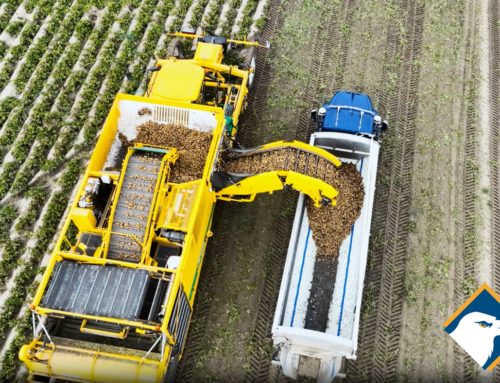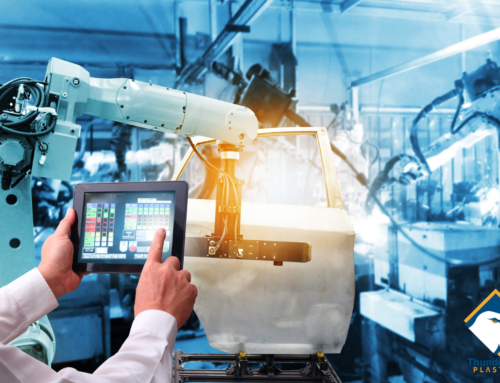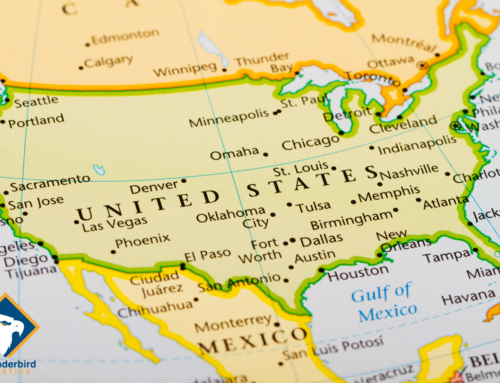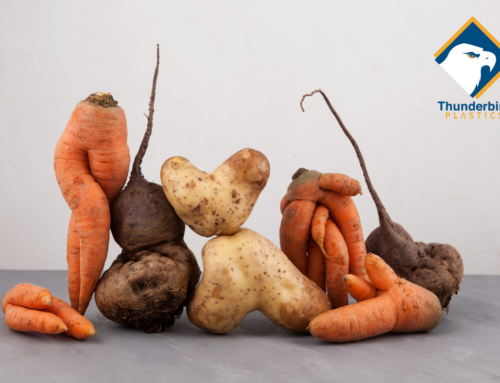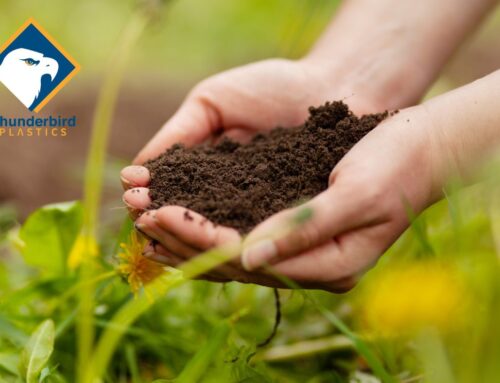Agriculture Crates, Aquaculture Crates, and Custom Injection-Moulded HDPE Containers for Mechanized and Automated Specialty Farming
In 2023, a USDA Economic Research Service report cited a 4.4% year-over-year increase in agricultural labor costs. Over 50% of specialty crop producers cite the availability and cost of labor as their main challenge. This reality is undoubtedly a driving factor behind farmers adopting new technology and improving efficiency wherever possible [1]. However, it is niche, small-scale sectors like apiculture and aquaculture that are particularly affected by rising labor and material costs due to their reliance on manual processes and traditional materials. Larger operations benefit from economies of scale, whereas small businesses may not always be able to justify investing in newer technologies. To guarantee ROI on expenditures, these niche sectors are showing a rising demand for durable, specialized farming containers, especially when paired with newly adopted mechanized or automated machinery. Traditional processes that employ traditional materials like wood and metal are being phased out by custom-engineered machinery, which requires precise and reliable components.
Why Traditional Materials Fall Short
Materials like wood and metal tend to yield a greater instance of error when subjected to the rigors of mechanized or automated processes. Wooden frames and crates will warp or crack with increased temperature, impact, and moisture, while metal components are particularly vulnerable to corrosion, especially in saltwater conditions common to shellfish aquaculture. Deteriorating and misshapen farming containers are not an option for high-precision machinery.  A 2021 study about handling failures by grip-and-pick robotic arms emphasizes the importance of precise edges and positioning. This precision can only be achieved when containers are designed specifically for the machine and will reliably maintain their shape and alignment [2]. For these reasons and more, here at Thunderbird Plastics, we use High-Density Polyethylene (HDPE) for our agriculture and aquaculture containers due to its remarkable mechanical properties. With a tensile strength of approximately 38 MPa, a modulus of elasticity of 1000-1400 MPa, resistance to impact, and resistance to fluctuating temperatures, our engineers have decided that these characteristics make HDPE the most suitable material for our products [3].
A 2021 study about handling failures by grip-and-pick robotic arms emphasizes the importance of precise edges and positioning. This precision can only be achieved when containers are designed specifically for the machine and will reliably maintain their shape and alignment [2]. For these reasons and more, here at Thunderbird Plastics, we use High-Density Polyethylene (HDPE) for our agriculture and aquaculture containers due to its remarkable mechanical properties. With a tensile strength of approximately 38 MPa, a modulus of elasticity of 1000-1400 MPa, resistance to impact, and resistance to fluctuating temperatures, our engineers have decided that these characteristics make HDPE the most suitable material for our products [3].
 [4, 5]
[4, 5]

The Fresh Pack Crate from Thunderbird Plastics
These comparisons show why HDPE is favored in automated settings due to durability and precise moulding ability [6]. For farmers looking for a single-use option that is compatible with mechanized and automated machinery, our Fresh Pack Crate is a good option because it is highly affordable, more durable, and more precise than cardboard. For farmers looking not willing to compromise on environmental sustainability, HDPE is highly recyclable at the end of the product’s life, just like cardboard.
Apiculture: Beekeeping Beyond Wooden Hives
Emerging smart beehive technology integrates sensors in an IoT to allow AI to analyze data likehive weight, sound and vibration, and colony activity to manage factors like temperature and humidity.With technology monitoring these important factors, the cost of labor is reduced. However, to maximize ROI and minimize downtime, traditional beekeeping components like hive bodies, frames, and feeders can be precision-moulded using HDPE [7].

The SuperTray Shellfish Grow-Out System
Shellfish Farming Innovations
In the shellfish and aquaculture farming sector, mechanized and automated systems sort, clean, grade, feed, and package shellfish.Aquaculture and shellfish grow-out systems must be made from durable materials that can withstand fluctuating temperatures and saltwater [8]. This is especially true when further subjected to the mechanical strains of mechanized and automated machinery. For continued reliability in marine environments, HDPE injection-moulded shellfish and aquaculture containers perform best. The SuperTray shellfish grow-out system at Thunderbird Plastics is an incredible option for the sustainability and tech-minded aquaculture professional.
The Path Forward: Custom Moulded Solutions

The Stackable Harvest Crate from Thunderbird Plastics
Partnering with our team at Thunderbird Plastics to design custom HDPE plastic containers is the key to ensuring precision and speed in mechanized and automated farming operations. However, some of our existing HDPE injection-molded farming supplies such as the Stackable Harvest Crate, are machine-ready and can replace traditional materials. Call us at 888-77T-BIRD or email us at info@thunderbirdplastics.com to discuss how we can customize components for your non-traditional farming operations.
References
USDA Economic Research Service (2023). U.S. Agriculture Labor Expenses Forecast to Increase More Than 4 Percent in 2023. Retrieved from https://www.ers.usda.gov/amber-waves/2023/july/u-s-agriculture-labor-expenses-forecast-to-increase-more-than-4-percent-in-2023
Wang, W., et al. (2021). Robotic Automation of Food Handling: A Review of Robotic Systems and Their Applications in the Food Industry. Frontiers in Neurorobotics. Retrieved from https://doi.org/10.3389/fnbot.2021.570507
Tiange Zhu, Xiaolin Li, Xiuying Zhao, Xi Zhang, Yonglai Lu, Liqun Zhang (2022). Stress-strain Behavior and Corresponding Crystalline Structures of Four Types of Polyethylene Under a Wide Range of Strain Rates. Polymer Testing, Volume 106, Article 107460. Retrieved from https://doi.org/10.1016/j.polymertesting.2022.107460
AGRU America (n.d.). HDPE Pipes in Agriculture. Retrieved from https://agruamerica.com/hdpe-pipes-in-agriculture
Direct Plastics (n.d.). HDPE Data Sheet. Retrieved from https://www.directplastics.co.uk/pdf/datasheets/HDPE%20Data%20Sheet.pdf
P. D. Andini et al. (2011). Plastic Waste Management and the Need for Recycling in the Food Industry. Waste Management, 31(4), 840-850. Retrieved from https://www.sciencedirect.com/science/article/pii/S1319610311002729
Honest Bee Ltd. (n.d.). Are Plastic Beehives Any Good? Retrieved from https://honestbeeltd.com/faqs/are-plastic-beehives-any-good
UMCES (2023). Research Team Receives $10M to Transform Shellfish Farming with Smart Technology. Retrieved from https://www.umces.edu/news/research-team-receives-10m-to-transform-shellfish-farming-with-smart-technology/


